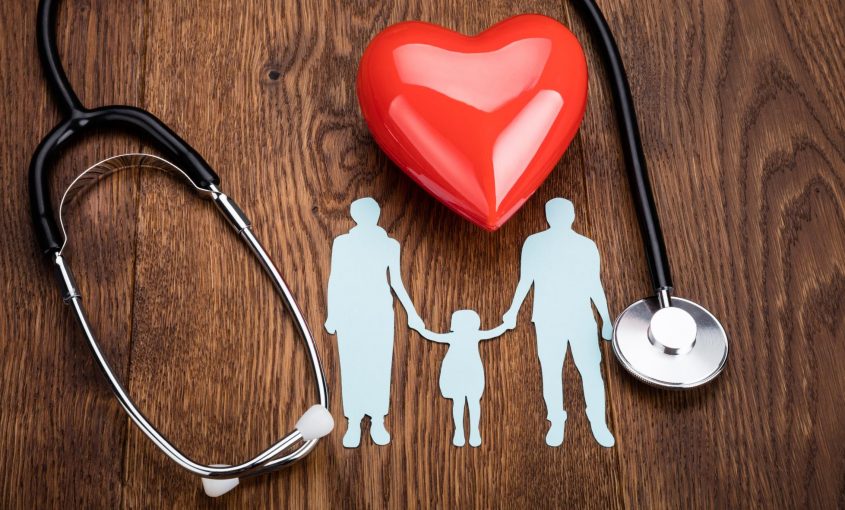Georgia’s Health Coverage Gap
- State lawmakers can put an insurance card in the pockets of 473,000 Georgians by bringing home money from the federal government to pay for coverage.
- About 240,000 Georgians make too little to get financial help to buy health insurance on the Marketplace and don’t currently qualify for Medicaid. These Georgians are stuck in the coverage gap with no affordable health insurance options.
- Rural Georgia is struggling. Six rural hospitals have shuttered since 2013 across the state, and more than half of Georgia’s remaining rural hospitals are financially vulnerable to closure.
- Opioid abuse and unmet mental health needs are decimating communities statewide, exacerbated by high uninsured rates among working Georgians who simply can’t afford access to care.
- The problem is only getting worse. Georgia’s uninsured rate of 12.9 percent is fifth worst in the country. In rural Georgia, the uninsured rate could climb to more than 25 percent by 2026.
- Georgians are already paying taxes toward closing our coverage gap, but state leaders have refused billions in federal health care dollars meant to pay for Georgians’ health coverage and stabilize struggling rural hospitals.
Hardworking Georgians need health coverage to stay healthy
- Working Georgians who could gain coverage earn income below 138 percent of the federal poverty level: about $16,750 for an individual, $22,715 for a family of two and $28,675 for a family of three.
- The majority of people who would be covered by expanding Medicaid are working but often not offered health benefits through their job.
- Closing Georgia’s coverage gap would extend health insurance to more than 155,000 uninsured women in Georgia. Georgia ranks among the bottom five states for women’s health insurance coverage.
- Closing the coverage gap could extend health insurance to nearly half of Georgia’s uninsured veterans, expanding coverage to 32,000 uninsured veterans and military spouses in our state.
Now is the time for state lawmakers to expand health coverage
- Most other states have already put insurance cards in the pockets of hard-working families, helping them afford to see a doctor when they get sick. Georgia is one of only 17 states to not close the coverage gap by expanding Medicaid.
- State leaders have delayed offering serious solutions for Georgia’s worsening health care crisis for years, waiting on Congress to provide a solution that hasn’t come.
- As Georgia leaders refuse to close the coverage gap, the federal government simply keeps our tax dollars. Each year we wait, our state misses out on $3 billion federal dollars meant to pay for Georgians’ health coverage. That’s more than $8 million each day.
- Georgia has already missed out on $12 billion federal health care dollars. Georgia can’t afford to keep waiting.
Closing coverage gap yields big economic benefits for state
- For every dollar the state spends on closing the coverage gap, Georgia receives up to $9 in federal funding.
- Closing the coverage gap could create 56,000 jobs in Georgia each year and boost the state’s economic output by $6.5 billion annually.
- Closing the coverage gap would create at least 12,000 jobs and $1.3 billion in new economic activity in Georgia’s rural communities each year.
Stabilize struggling rural hospitals by closing the coverage gap
- Many Georgia hospitals are struggling because they treat so many patients who lack health insurance and can’t afford high out-of-pocket costs. Closing the coverage gap opens up an important revenue stream to ensure rural communities have access to health care.
- Taxpayers end up paying a share of the cost for uninsured people who show up in emergency rooms. Closing the coverage gap would allow people to go to their doctor instead of the emergency room when they get sick.
- Other states have seen significant reductions in uncompensated care after closing their coverage gaps: Arkansas experienced a 56.4 percent decrease, and Kentucky saw a 59.7 percent decrease.
Strengthen mental health, substance use treatment by expanding health coverage
- Closing the coverage gap can significantly strengthen behavioral health treatment and services in Georgia. About 25 percent of uninsured Georgians who would qualify for Medicaid expansion coverage suffer from mental illness or substance abuse.
- States that closed their coverage gap expanded treatment services to more people with mental illness or substance use disorders. Kentucky saw a 700 percent increase in Medicaid beneficiaries using substance use treatment services after the state expanded eligibility in 2014.
Georgia can afford to close the coverage gap
- Georgia can afford to close the coverage gap, but state leaders have so far chosen to spend tax dollars in other ways, like $309 million for insurance company tax breaks. State leaders could also increase Georgia’s bargain-basement tobacco tax to raise hundreds of millions of dollars a year.
- Closing the coverage gap would extend health coverage almost half a million Georgians, support struggling hospitals, create 56,000 jobs and bring in $3 billion from the federal government. The net cost to Georgia would be $136 million a year on average.

